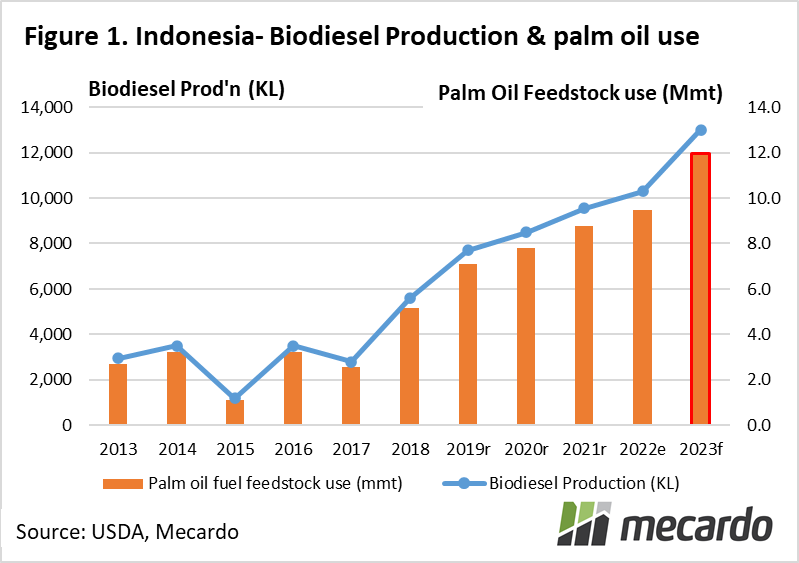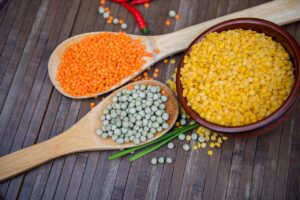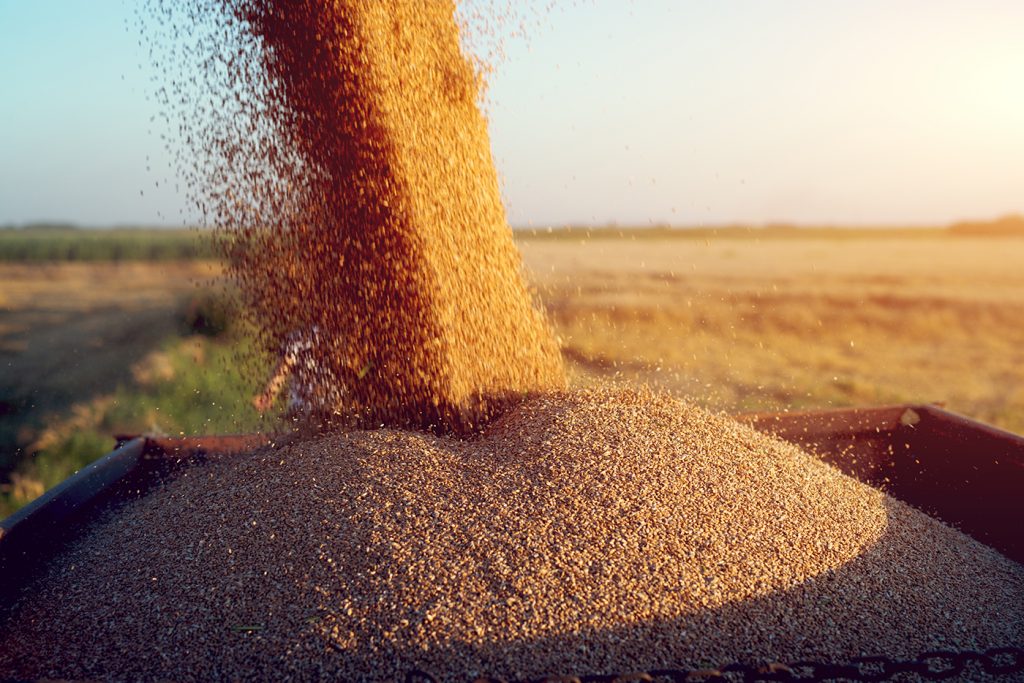Indonesia has announced plans to implement a 35% (B35) biodiesel fuel blend program as early as January 2023 in response to stubbornly high crude oil prices. This will increase domestic Indonesian palm oil demand, providing support for palm oil prices, and, in turn, other oilseeds in the vegetable oil complex, such as canola.
According to the Indonesian palm oil board, Indonesia’s 2022 production of palm oil is expected to reach 46.5mmt, with 30.9mmt exported to the world, representing 66% of production. 2023 production is forecast to rise 1.6mmt(3%) to 48.1mmt, and exports to increase 2.5mmt to 33.5mmt.
The expectation that Indonesia will implement a 5% increase in it’s biodiesel fuel blending mandate to 35% (B35) in January 2023 will have the impact of increasing domestic usage of palm oil within the country, and help keep a lid on international exports volumes in the face of rising production. The Indonesian government has stated that part of the impetus behind the change is the expectation of a continued environment of elevated crude oil prices for the foreseeable future, and an intent to both reduce fuel import costs, and reduce net greenhouse gas emissions for the country.
In addition, by increasing palm oil demand; the mandates also support palm oil prices for producers, giving the industry a solid boost.
Consultancy LMC international estimates that Indonesia’s palm oil use for biodiesel manufacturing hit around 7mmt in 2020, representing around 17% of total production. The USDA estimates even higher; at 7.8mmt. Compared to 2015, when usage was only 1.4mmt, palm oil usage has achieved growth of more than 500% in the space of five years.
To put the policy change into perspective, the increase in the blending mandate is expected to increase domestic Indonesian biodiesel demand 18% from 11 million KL to 13 million KL, which translates into around 1.8mmt of extra palm oil (CPO) consumption in 2023. (assuming that the 13,000,000KL target is met).
USDA data on Indonesian biodiesel production, augmented with Mecardo estimates for 2023 on palm oil feedstock use are presented in figure 1, indicating that Indonesian domestic palm oil feedstock use could reach 12mmt, or 25% of gross Indonesian production in 2023.
Indonesia has plans to increase the biodiesel blending mandate to 40% (B40); and ran a series of road test trials on 12 of the most popular car models and brands of cars in Indonesia over a distance of 50,000 kilometres. However; the result was that 2 out of the 12 tested cars ran into problems of significance. Eddy Abdurrachaman, CEO of palm oil fund BPDPKS estimates that the introduction of the B40 standard could increase palm oil based fuels could increase by an additional 2 million KL to 15,000 KL.
In addition, Indonesia has mandated that aviation fuel must be blended at a rate of 5% (B5) by 2025.
The palm oil industry suffered a setback earlier this month with the EU passing new laws on December 6th that will reduce it’s role in supporting deforestation. The laws prevent companies selling commodities linked to deforestation across the globe, covering coffee, palm oil, soy and even beef products.
In 2020, Indonesia’s energy minister had estimated that an additional 15 million hectares of new palm plantations will need to come online to meet the nation’s biodiesel usage targets, representing a serious threat to rainforests, particularly in the Papua region.
What does it mean?
Increased domestic Indonesian palm oil demand will reduce the volume available for export from one of the worlds largest palm oil producers, and plans to increase the blending mandate further, to 40% indicate further increases in demand. This policy has provided support to the palm oil price in 2023, and will help it weather the storm of regulatory headwinds coming out of the EU. This is likely to generate sustained upward pressure on the price of other oilseeds such as canola into the future.
Have any questions or comments?
Key Points
- Indonesia to raise biodiesel blending mandate from 30% to 35% due to high crude oil prices
- Biofuel mandate increase will raise domestic Indonesian palm oil demand
- Indonesian biodiesel use in 2023 expected to rise 18% to 13 million KL, which translates to 12mmt of palm oil.
- Indonesia has future plans for a 40% mandate, but current trials indicate 20% of vehicles were damaged by current formulations.
Click on figure to expand
Click on figure to expand
Data sources: USDA; Refinitv, Mecardo USDA













